| Top Ten Chinese Marshals | |
|---|---|
| Apr 30, 2007 01:53 | |
 | China first adopted the military rank in 1955 after the foundation. In that year, there were ten military officials who were awarded the rank of marshals and generals. Today, let's see the ten marshals. The first is Zhu De. Zhu De (1886-1976) was a Sichuanese. He attended the Long March and was th commander in chief of the 8th route Army during the anit-Japanese war and latter of PLA after the foundation of New China. After the liberation, he once was the vice president of PRC and the chief of CPC. 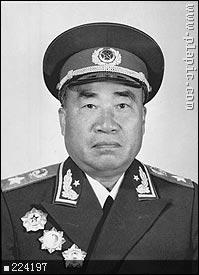 |
| Apr 30, 2007 02:00 | |
 | The second is Peng Dehuai. Peng (1898-1974) was a Hunanese. He attended the Long March with Mao Zedong and Zhu De. He is the originator of the guerrilla warfare with Mao Zedong. After liberation, he once served as the minister of defence from 1954 to 1959. He was the commander in chief during the Korea War. He also was the vice premier from 1959 to 1965. 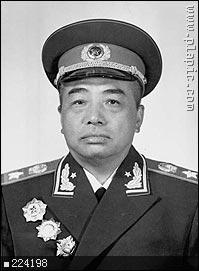 |
| Apr 30, 2007 02:10 | |
 | The third is Lin Biao. Lin (1907-1971) was a Hubeinese. His distinguished military talents is the top of the ten marshals. He graduated from the Huang Pu Military Academy. During the liberation war, he commanded the Liao Shen Battle and Ping Jing Battle. After the liberation, he once served as the vice president of Central Military Commission of PRC, the minister of defence and the vice premier. However, he was involved in an unsuccessful coup and died in the aircrash in 1971. 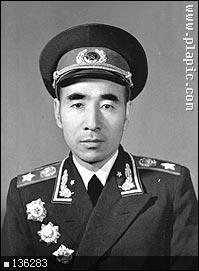 |
| Apr 30, 2007 02:14 | |
 | The fourth is Liu Bocheng. Liu (1892-1986) was also a Sichuanese. His nickname is Chinese Mars and One-eyed Dragon. Liu Bocheng is known as one of the Three and A Half Strategists of China in modern history. (The other two are Lin Biao, commander of the CPC, and Kuomintang commander Bai Chongxi, and the half refers to CPC commander Su Yu.) Officially, Liu was recognised as a revolutionist, militarist and military theoretician, and one of the founders of the People's Liberation Army. 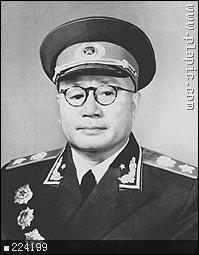 |
| Apr 30, 2007 02:19 | |
 | The fifth is He Long. He (1896-1969) was a Hunanese.He launched the Nanchang Uprisings and was the commander in chief of the first division of Red Army. After the liberation, he once served as the vice premier. He headed the National Sports Commission. In 1965, he advised to abolish the system of military rank. 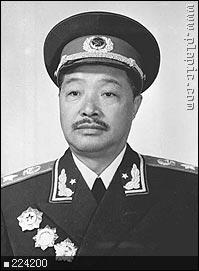 |
| Apr 30, 2007 02:23 | |
 | The sixth is Chen Yi. Chen (1901-1972) was a Sichuanese. Chen became the commander of the New Fourth Army in 1946. After 1949 he was mayor of Shanghai and a dominant figure in China. He succeeded Zhou Enlai as foreign minister in 1958. Chen was severely criticized during the Cultural Revolution despite attempts by Zhou to protect him. After 1967 his role was eclipsed by Zhou, who resumed the direction of foreign policy in his capacity as premier. 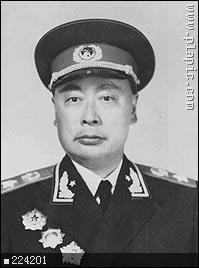 |
| Apr 30, 2007 02:36 | |
 | The seventh is Luo Ronghuan. Luo (1902-1903) was a Hunanese. He was an graduate. He attended the Qiushou Uprising. Most of his positions are the commissar of the army. After the liberation, he served as the procurator of the Supreme Procurate of PRC ,the vice president of Cental Military Commission, the chief of standing commitee of NPC in the first and second succession. 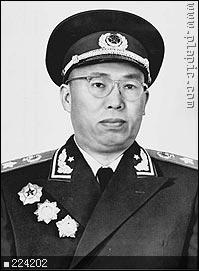 |
| Apr 30, 2007 02:44 | |
 | The eigth is Xu Xiangqian. Xu (1901-1990) was a Shanxinese. He was once the commander of the fourth front of theRed Army. After the liberation, he served as the the general chief of the staff of PLA and the vice chairman of CMC in 1954. In 1965, he served as the vice premier and the minister of defence from 1978 to 1981. 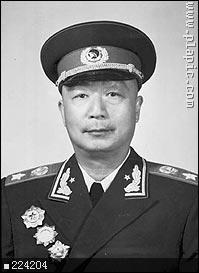 |
| Apr 30, 2007 02:49 | |
 | The nineth is Nie Rongzhen. Nie (1899-1992) wa also a Sichuanese. He was a graduate of the Soviet Red Army Military College and Whampoa Academy, Nie spent his early career first as a political officer in Whampoa's Political Department, where Zhou served as Director, and in the Chinese Red Army. During the Second Sino-Japanese War, he was first assigned as the deputy division commander of the 115th division of the Eighth Route Army, with the commander being Lin Biao. In the Chinese Civil War he commanded the Northern Chinese Field Army, and with his deputy Xu Xiangqian, his force defeated Fu Zuoyi's forces near Beijing. During the Korean War, Nie took part in high command decision making, military operations planning, and shared responsibility for war mobilization. Nie once was in charge of the Chinese nuclear weapons program. 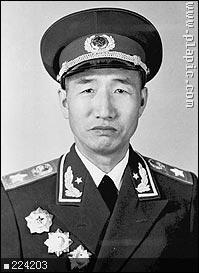 |
| Apr 30, 2007 02:56 | |
 | The last is Ye Jianying. Ye (1897-1986) was from Guangdong. In 1932, he joined the Jiangxi Soviet. He served as chief of staff of Zhang Guotao's fourth Army. During the Long March, Ye Jianying assisted Liu Bocheng in directing the crossing of the Yangtze River at Anshuchang and Luding Bridge, and became director of the offices that liaised with the KMT after 1936. 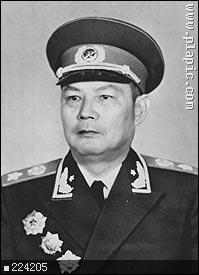 |
| Apr 30, 2007 03:25 | |
 | I admire and respect Peng Dehuai and Chen Yi mostly!! |
Page 1 of 2 < Previous Next > Page:
Post a Reply to: Top Ten Chinese Marshals






 Copyright © 1998-2026 All rights reserved.
Copyright © 1998-2026 All rights reserved.